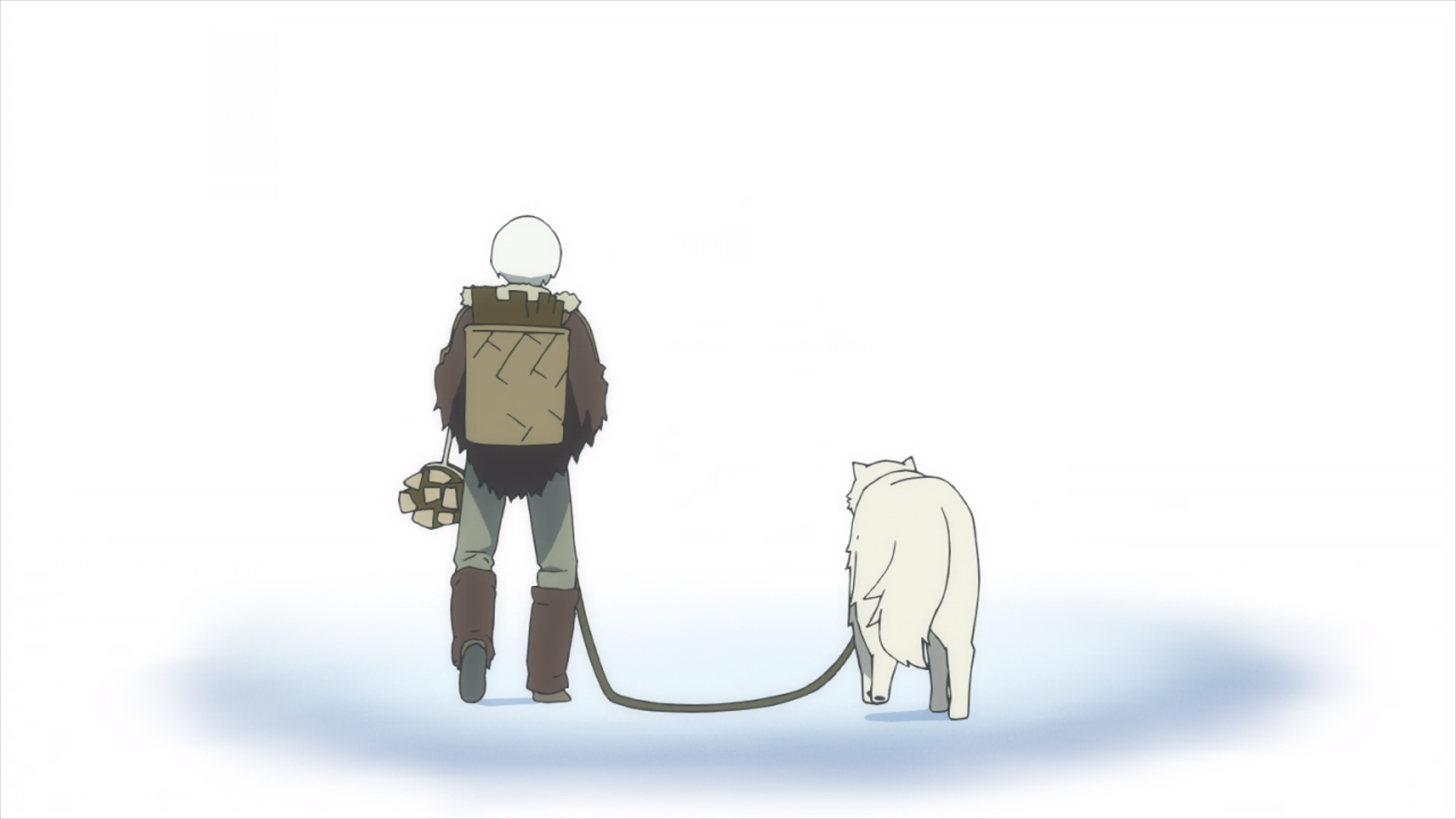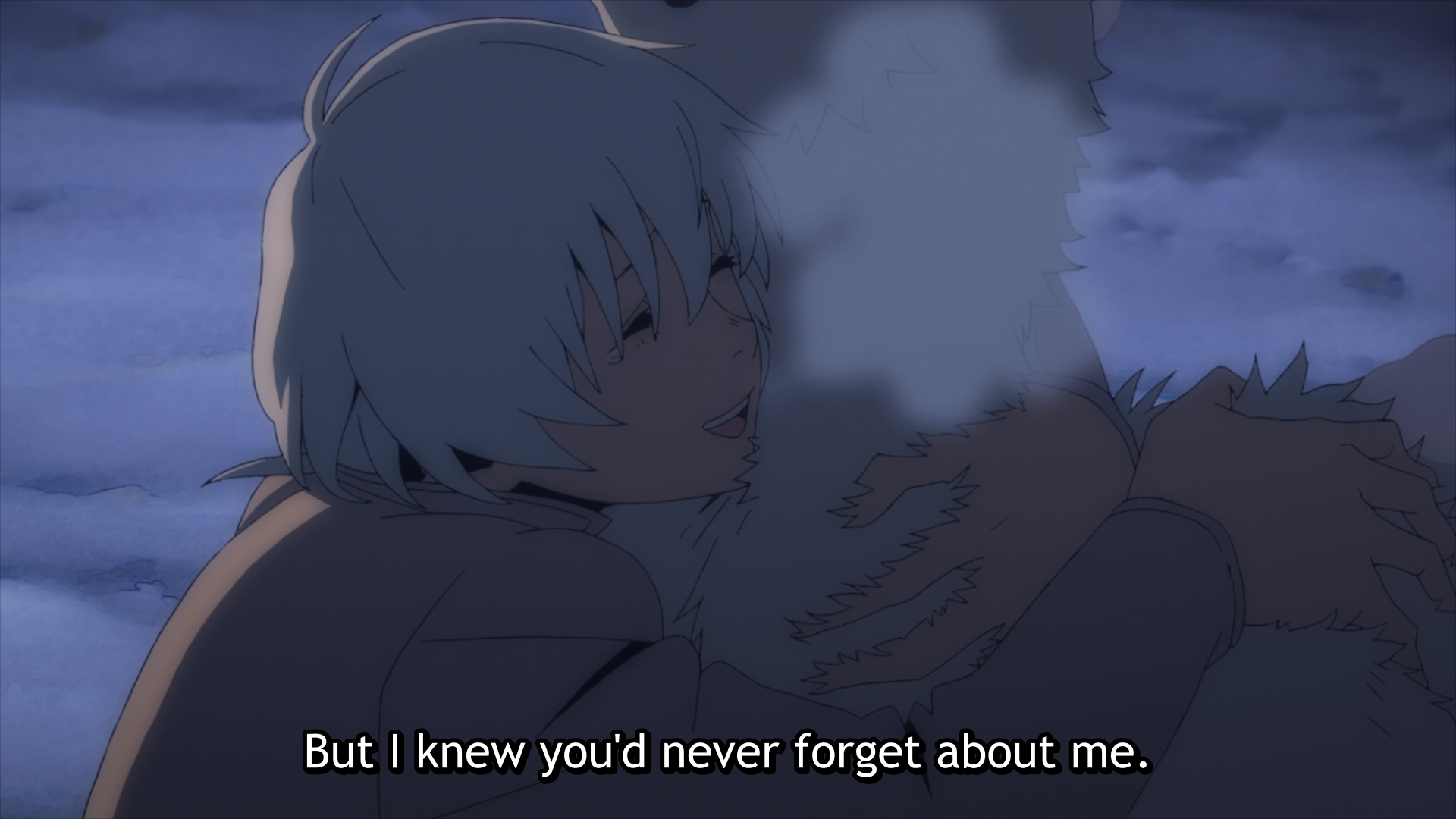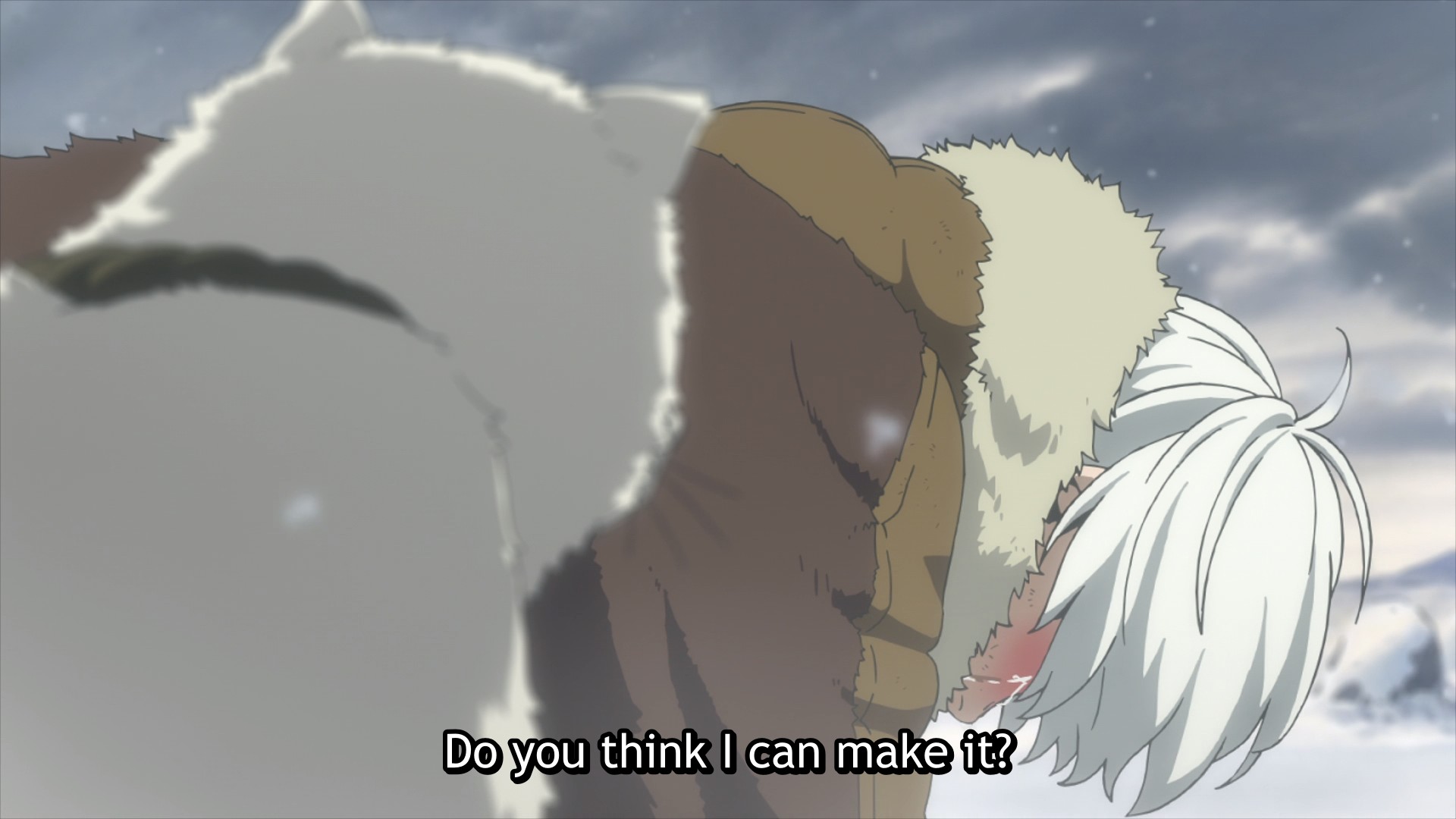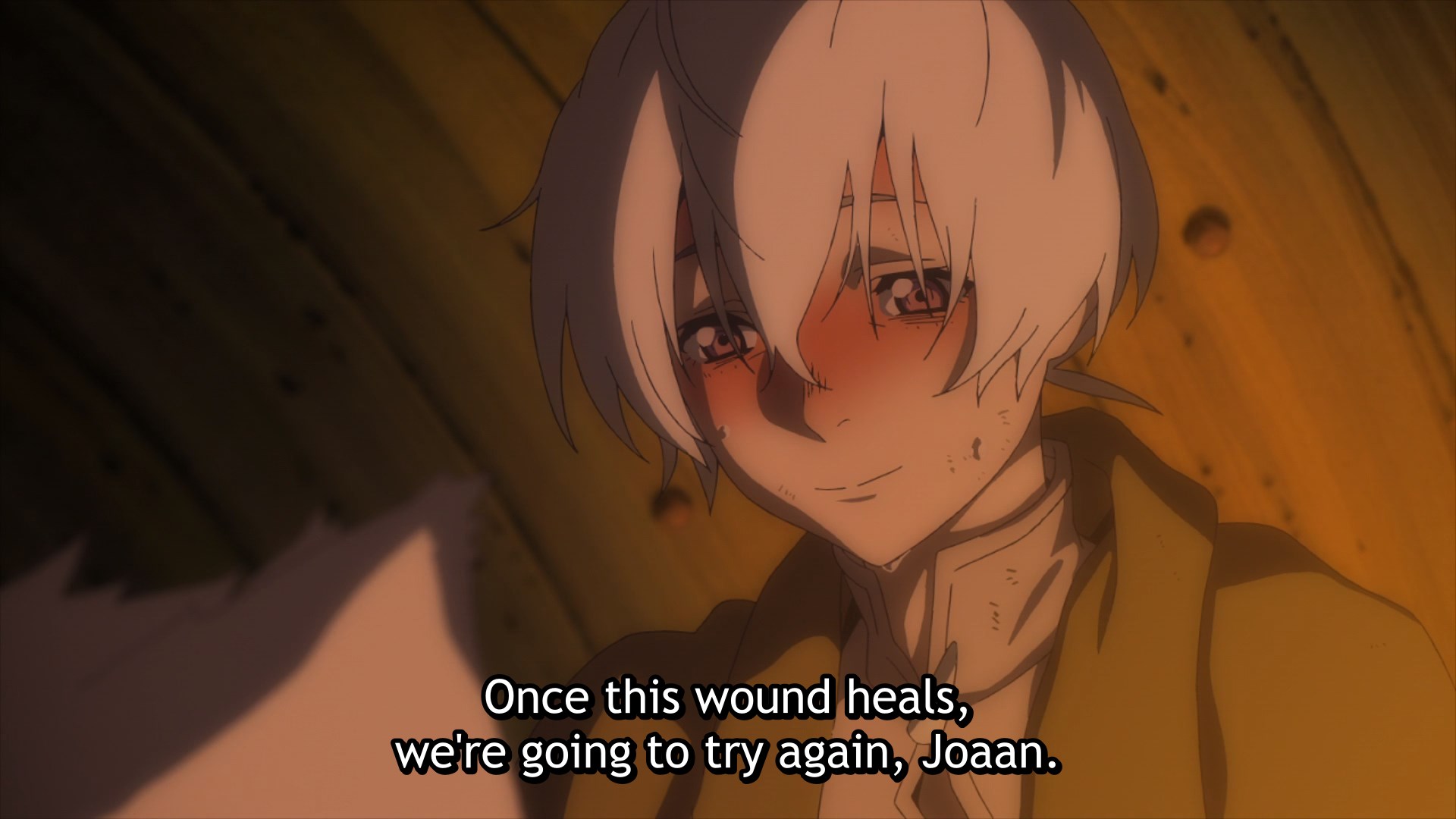The world of To Your Eternity begins in silence on a cold, featureless plain marked only by anonymous stones. Soon, even those bare features are lost as a blanket of snow steals all definition from the tundra. This scenery, where the sky looms heavy above and the ground, is a faceless sheet, the natural state of being in this world — lonely and harsh, with only our own bodies breaking the silent visual monotony. This world grants little and takes all that it can; even hope cannot survive in a place like this, never mind living creatures. And yet, the boy endures.

The boy must endure, although every element of this world rallies against him. Even the traditional markers of security and community are here inverted, used instead to amplify the sensation of loneliness. The boy lives in a village that has been hollowed out, full of crumbling houses, depopulated by time and the promise of a better life. It is a perpetually dwindling ember — like the boy’s drawings, more a marker of what once was than a living home. Security is a memory here — the old people once were, but are gone, the deers have run out, even the buildings are falling.
The boy takes what solace he can from these fading markers, even as those memories only sharpen his sense of grief. He speaks constantly of absent family and friends, chiding himself for stealing from people he rightly knows are never returning. Even the return of his dog “Joaan” is a moment of quiet tragedy, built on the dramatic irony of us knowing Joaan’s true fate. While the boy cheers that “I knew you’d never abandon me,” we in the audience know the truth: Joaan died alone in the snow, like so many others, unable to find his way home. This new form of Joaan is more like hope itself, a warm and comforting idea, rather than the original creature.

In this world, hope really is all we can cling to. Mangaka Yoshitoki Oima’s previous work, A Silent Voice, was built on a similar tension — in a scenario where all seems lost, we cling to whatever hope we can find and survive because we believe things might one day be better. A Silent Voice’s characters clung to hope in the face of self-hatred and social isolation; whether driven by faith, obligation, or spite, they clung to life with a determination speaking to vast inner strength. In a world that offers no solace, we must be our own comforters, keeping a quiet flame alive.
So it goes for the boy, who frequently talks to himself, carrying on conversations and talking about his absent friends. I doubt he started off performing these conversations; but over time, they have likely become a way that he maintains a closeness to those he loved, like the drawings in his home. When the memory of joy is gone, hope cannot survive — and so the boy clings to that memory, reminding himself every day that things could be better, things could be different, things were different once. Even when he begins to lose faith, he assigns that loss of faith to “Joaan” and talks himself out of his dark thoughts.

While the boy has the memory of better days to sustain him, the dog feels like an avatar of hope in a very different way. Unfamiliar with even the simplest mechanisms of existence and survival, the dog delights in the simple joy of discovery, as he experiences for the first time every pleasure we take for granted. The warmth of a fire, the softness of a blanket, the satisfaction of a good meal — pleasures so common we tend to forget about them. In the midst of despair, simple pleasures can be a life raft, reminding us that not all comfort has truly abandoned us.
Sometimes, hope seems more painful than it’s worth. Though the boy puts on a brave face and talks about how everyone will surely come home, he clearly understands the unlikeliness of that future. His true hunger is made clear when he briefly believes his family has returned and rushes back to his shelter. That quiet prayer on the doorstep, leading into the cold silence of his empty home — at times, it can be very hard indeed to keep hope alive. When his journey south ends in defeat, he is too spent to even rekindle the embers of his original belief. Hope can sustain us, but hope unrewarded is a terrible thing.

If we don’t have that flame, we have nothing at all. Just as the boy took solace in markers and memories, we must remember that we are not truly alone — that as long as others are struggling as well, we have common cause, and may one day reach each other. Even after all his hardship, the boy still maintains that “once this wound heals, we’re going to try again.” Even when he knows his death is approaching, he drags himself to his chair, wishing to be presentable when his family finally returns. His final request to Joaan is the same gift he granted his old family: the security of being remembered, even when you are gone. Ultimately, it is our hope itself that makes this world worth traversing, that makes all the suffering worthwhile — it is the knowledge that there are others like us, that we are struggling together, and that even if we fall, we were loved, and will be remembered. There is beauty in this world, desolate and lonely as it is. There is beauty, if we can only tend the flame.
Read the entire To Your Eternity manga here.
Nick Creamer has been writing about cartoons for too many years now and is always ready to cry about Madoka. You can find more of his work at his blog Wrong Every Time, or follow him on Twitter.
Do you love writing? Do you love anime? If you have an idea for a features story, pitch it to Crunchyroll Features!
Source: Latest in Anime News by Crunchyroll!


Comments
Post a Comment